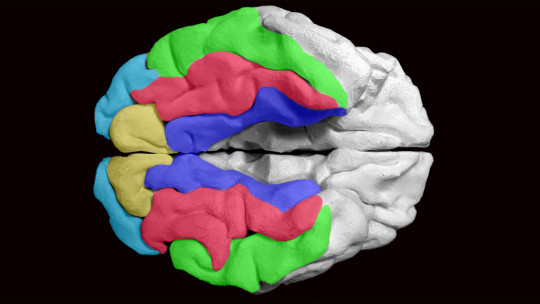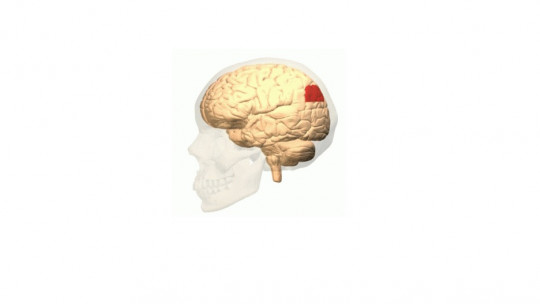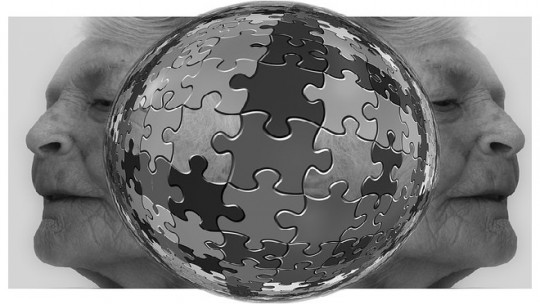Dementia consists of the deterioration of the intellectual functions of the person who suffers from it. We commonly associate dementia with memory problems, although we must keep in mind that the functions that are impaired or are deteriorating can be diverse: language comprehension or production, attentional and perceptual processes, executive functions such as planning, etc.
Sometimes people with dementia may feel agitated and/or upset. Logically, our way of acting and interacting to calm him down is not the same as what we would use to communicate with people without cognitive impairment. Therefore, in this online psychology article we give you some advice on how to calm a person with senile dementia through 10 guidelines
Keep in mind that all of them will not be applicable to all cases in the same way, since we must always take into account the degree of deterioration of the person with dementia.
Assess the causes of the alteration
It is possible that the alteration could be caused by some stimulus that we can get rid of: a noise, a current of air, a light , etc. If this is the case, out of common sense and to the extent possible, we should put an end to this stimulus or, if this is not possible, taking the person to another room may be a good solution.
If we cannot identify the reason, we must initiate, to the extent possible due to the deterioration, communication with the person with dementia to explore the cause of their discomfort. To do this, you can follow the guidelines set out in the following sections.
Finally, it is possible that there are certain stimuli that tend to upset the person. If it’s happened before, of course. tries to avoid, as far as possible, encountering these stimuli
Stand at the same height to talk to him
To start a communication, we must be at the same height as the person with whom we are going to communicate. If you are in a wheelchair, we will have to sit us too to be at the same level, which will favor the communication process.
In the following article, you will find more information about how a person with senile dementia behaves, the symptoms and phases.
Use a tone of voice that conveys calm
Using as calm a tone of voice as possible will convey calm to the person with whom we want to communicate. If you are wondering how to calm a person with dementia, you should know that behavior by imitation It can make the person we are interacting with tend to adopt our mood.
In this sense, we must observe ourselves and be aware of our own emotional state, since, in the same way, we ourselves may tend to become upset when faced with their attitude.
Avoid scolding him
It is possible that when faced with alterations such as physical and/or verbal aggression, we tend to “scold” the person, seeing and/or clearly assuming that the problem was initiated by him or her. In these cases, we tend to use phrases like “you’re overdoing it” or “look what you’re doing.” These actions can have a negative impact on the condition of the person with dementia.
You must always keep in mind that you are dealing with a person with cognitive limitations and that Maybe, because of his alteration, he doesn’t reason the way you want him to
Listen actively
Contrary to the previous section, show your interest in what happened and how the person experienced it Being empathetic and becoming allies to solve the problem will give security to the sick person regarding our figure.
We must not only listen, but we must also make sense.r make the other person feel heard Do not finish his sentences, even if it is difficult for him to communicate, be patient and let him freely express his emotions and sensations (as long as it does not cause harm to himself and/or third parties).
Use short and simple phrases to communicate
We must always keep in mind the degree of deterioration of the person with whom we are communicating. It is possible that the ability to understand (and also produce) is already sufficiently diminished to represent a limitation when communicating.
As dementia progresses we must use clearer, shorter, simpler sentences and more specific questions: “I understand that you are like this” or “Do you want to come to the patio?”
Avoid infantilizing him
Infantilizing older people is a very common practice that can be especially counterproductive during a behavioral alteration. We must address him or her in a loving and close way but avoiding a childish tone
Furthermore, we must keep in mind that we are communicating with an adult and we must treat them as such, respecting their decisions (as long as they do not harm third parties or themselves).
In this article, you will find more information about How a person with senile dementia should be treated.
Use non-verbal language and value physical contact
As we have already indicated, in advanced stages of dementia, communication can be complicated. However, we can support our verbal message with non-verbal language.
In the same way, when faced with communication problems, we can assess use physical contact to reassure the person with dementia. We must evaluate the approach always respecting the limits that the person wants to put. If you prefer that we not touch you, we must respect your decision and avoid contact.
Help solve the problem
We must become allies of people who suffer these alterations. To do this, we can guide, direct or help in the problem solving process.
If, for example, the problem is that he wants to go outside for a walk but it is raining, we can try to explain to him that if he goes out he will get wet and could catch a cold and offer him an alternative solution: “If you feel like taking a walk, we can do it in the hallway.” .
In more severe cases, as we have already mentioned, the person will be more limited both in telling us what is happening to them and in solving their problem. The more advanced the deterioration, the more presence we should have in the problem-solving process.

Redirect your attention
If the person cannot communicate, we can try to redirect your attention to some task that can offer you satisfaction or with which you can relax. We can even ask him to help us carry out a simple task and offer him said task (such as sorting socks, etc.) in this way, in addition to feeling useful, he will be able distract and calm down If you want to know how to entertain a person with senile dementia, we recommend the following article with 22 Activities for people with Alzheimer’s.
This article is merely informative, at PsychologyFor we do not have the power to make a diagnosis or recommend a treatment. We invite you to go to a psychologist to treat your particular case.
If you want to read more articles similar to How to calm a person with senile dementia we recommend that you enter our Neurosciences category.
Bibliography
American Psychiatric Association (2020). APA Dictionary of Psychology. Retrieved from https://dictionary.apa.org
- Junqué, C. and Jurado, MA (2009) Aging, dementia and other degenerative processes. In Junqué, C. and Barroso, J. Manual of neuropsychology. Madrid: Synthesis.
- Jurado, MA, Mataró, M. and Pueyo, R. (2013) Neurosciences of diseases.









